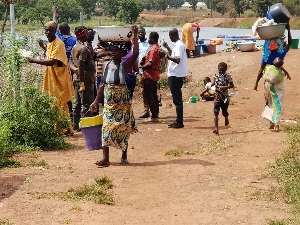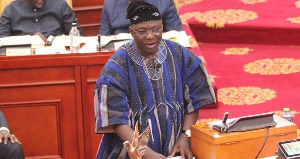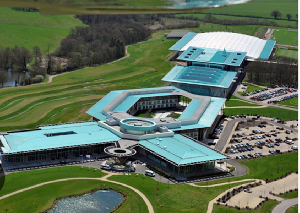Water remains a vital global resource imperative for human existence, residential use, industrial activities, and economic development in several sectors including agriculture, energy, and health. Water demand has increased in many parts of the globe, and along with it, is the threat to human security.
As of November 2023, 1,630 cases of water conflict had been logged with a spike in cases starting in 2022. This is why the theme for this year’s World Water Day “Water for Peace” is timely.
Ghana is endowed with diverse water resources, however, human activities such as rapid urbanization, deforestation, and unregulated informal gold mining continue to negatively impact the country’s water supply concerning quality and quantity. This is further deepening the inequitable access divide.
What is compounding the already acute water scarcity issues in the country is the escalating impact of climate change. Particularly in rural Ghana, women and girls find themselves among the most affected demographics. They dedicate numerous productive hours each day in search of water, often putting themselves in challenging and contested situations to secure access to this vital
resource. Water has a profound connection to the concept of peace.
For instance, in the areas of health, food security, and livelihoods, the increased scarcity of water in the Sahel has led to many herders migrating to coastal states like Ghana to find grass and water for their animals. This often
results in competition conflicts and sometimes violence. Increasing competition over access to water and the failure to address related challenges, usually intensify tensions and conflicts within and between communities.
In addition, unregulated informal gold mining in Ghana continues to pollute water bodies with heavy metals such as Mercury and Lead which are harmful to human life. These environmentally debilitating activities further affect the livelihoods of farmers and fisherfolks, sometimes leading to tension.
According to the 2023 Ecological Threat Report, water insecurity is a key driver of conflict, with water-related violent incidents exhibiting a threefold increase on average since 2000. The primary way that ecological threats increase conflict is by increasing competition for resources.
However, countries with high levels of resilience and strong institutions are better able to deal with increased resource competition.
Water plays a central role in sustaining ecosystems, supporting human life, and
advancing socio-economic development. Sustainable water management measures are therefore critical in improving access and availability of water as captured under Goal 6 (Clean Water and Sanitation) of the 2030 Sustainable Development Goals (SDGs). These measures, including the following, will help advance sustainable development.
Establish Effective and Inclusive Water Management Governance Systems
Firstly, local governments and communities should establish water management governance systems that promote integrated water resource management to ensure the protection and conservation of water bodies. Such governance systems should involve collaboration between central and local governments but also communities and relevant stakeholders including upstream users.
The access and use of water at the community levels should be guided by the principles of fairness, inclusivity, and environmental stewardship aimed at enhancing water quality.
Implement Effective Climate Adaptation Measures
Implementing effective adaptation measures will ensure the sustainable management of existing water resources, enhance water accessibility, and promote efficiency, particularly in vulnerable communities heavily reliant on agriculture and natural assets.
This is indispensable in fostering peaceful coexistence. With anticipated climate change impacts projected to decrease water availability in Ghana, it is imperative to build community resilience. This is why UNDP in Ghana has taken proactive steps, working with the Government to assist communities, particularly in the northern regions, by providing boreholes for increased water access.
Moreover, UNDP is also supporting rice farmers and their communities in Ghana to adopt innovative farming techniques such as alternate wetting and drying. This approach aims to optimize water management practices, thereby bolstering resilience against potential water shortages in the future.
Design Context-dependent Water Resource Use Programmes
In addition, it is important to design suitable water resource use programmes for communities where conflicts already exist between herders and local food crop farmers over water.
This will ensure a collective benefit to this vital resource. UNDP is working with various communities in Northern Ghana to establish local peace committees that will use inclusive approaches to address conflicts including over water and other natural resources.
Achieving SDG 6 is interconnected with SDG 13, “Climate Action”, and the performance of both goals has serious implications for achieving and maintaining peace (SDG 16). Ensuring peace over water resource usage requires the implementation of evidence-based strategic comprehensive policies that are inclusive, climate-sensitive, and forward-looking.
Public-private partnerships can help in advancing Ghana’s efforts to ensure that natural resources are peacefully managed.
Click to view details



Press Releases of Monday, 25 March 2024
Source: UNDP
Water for peacebuilding in Ghana
Entertainment
















